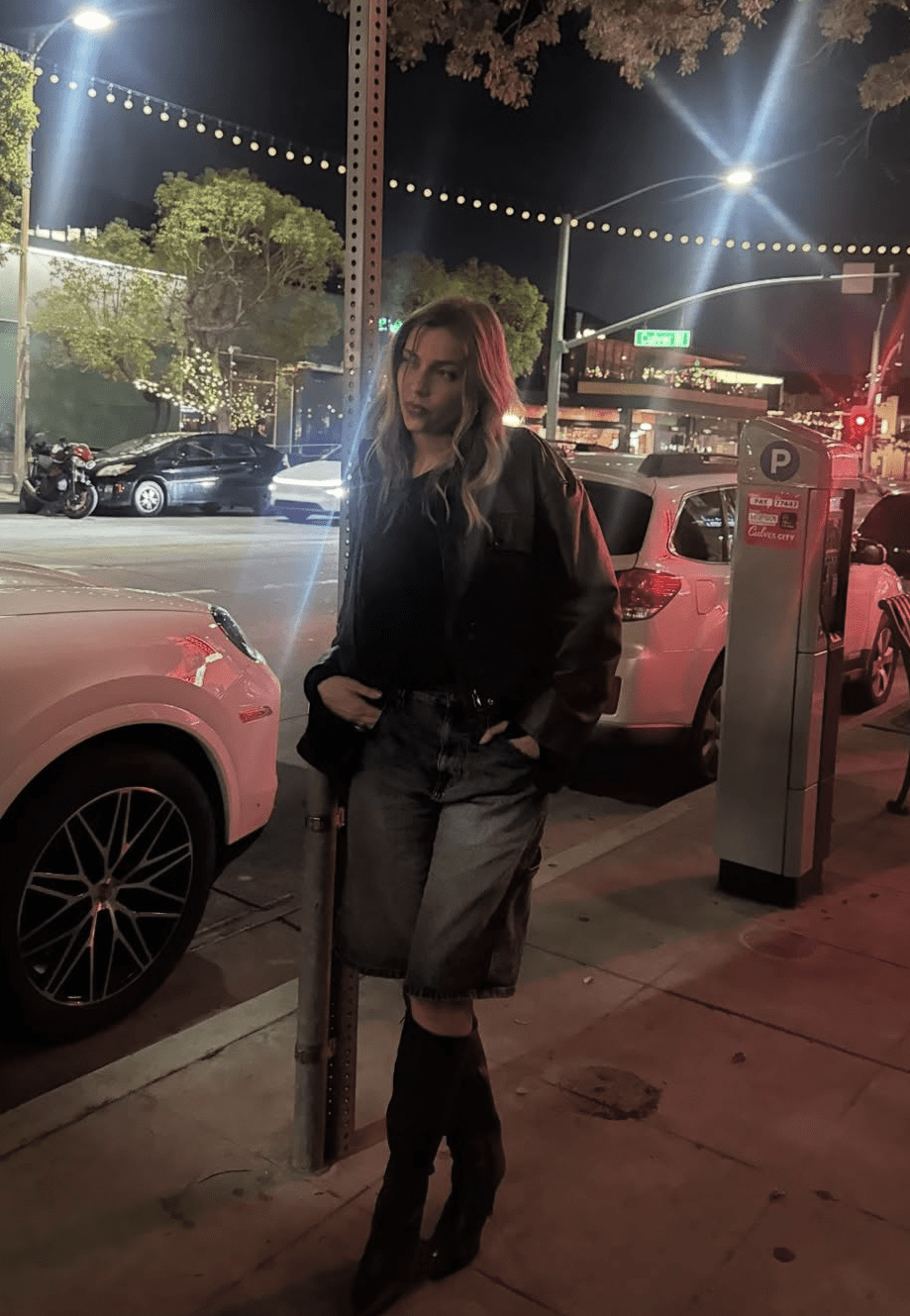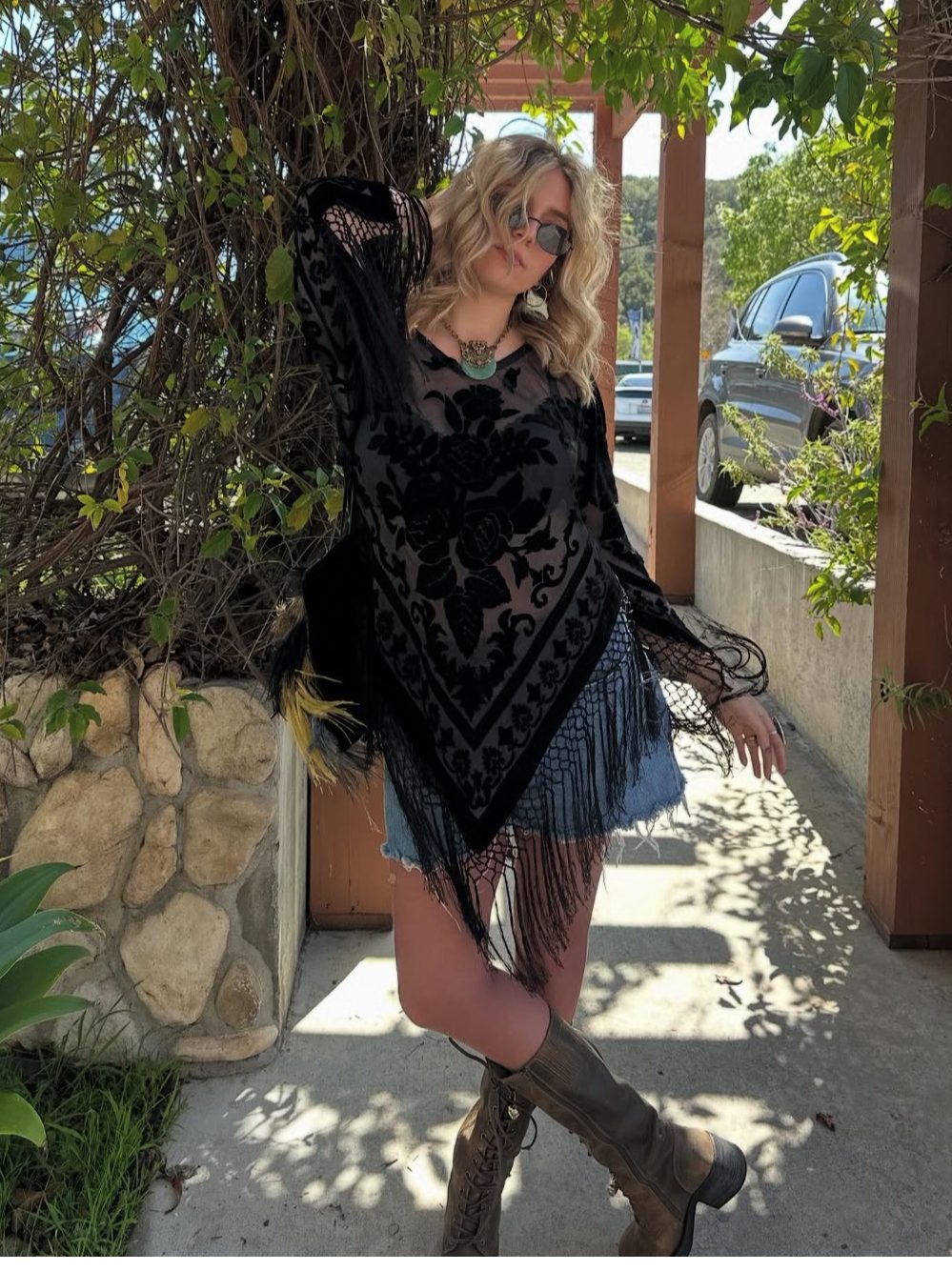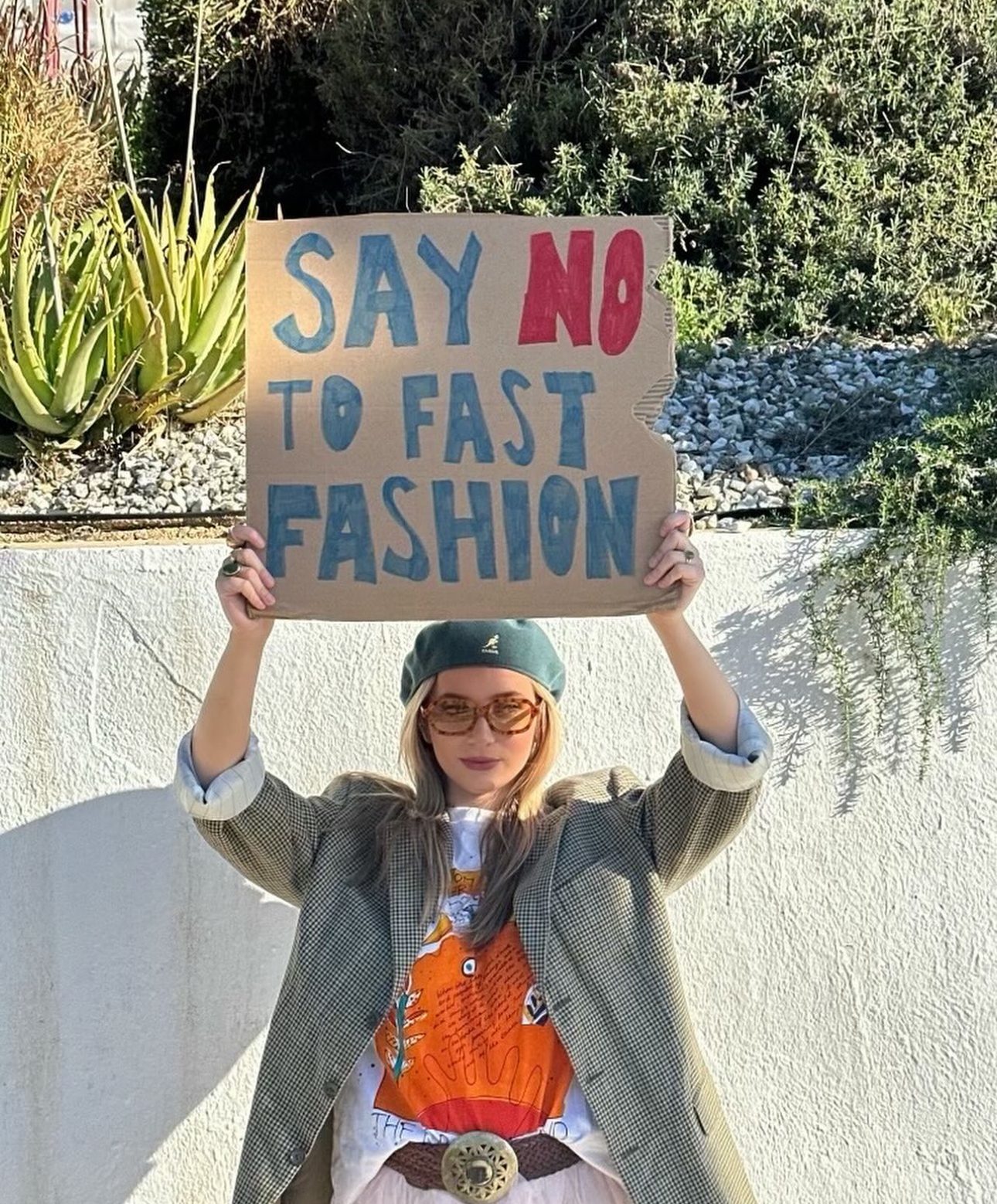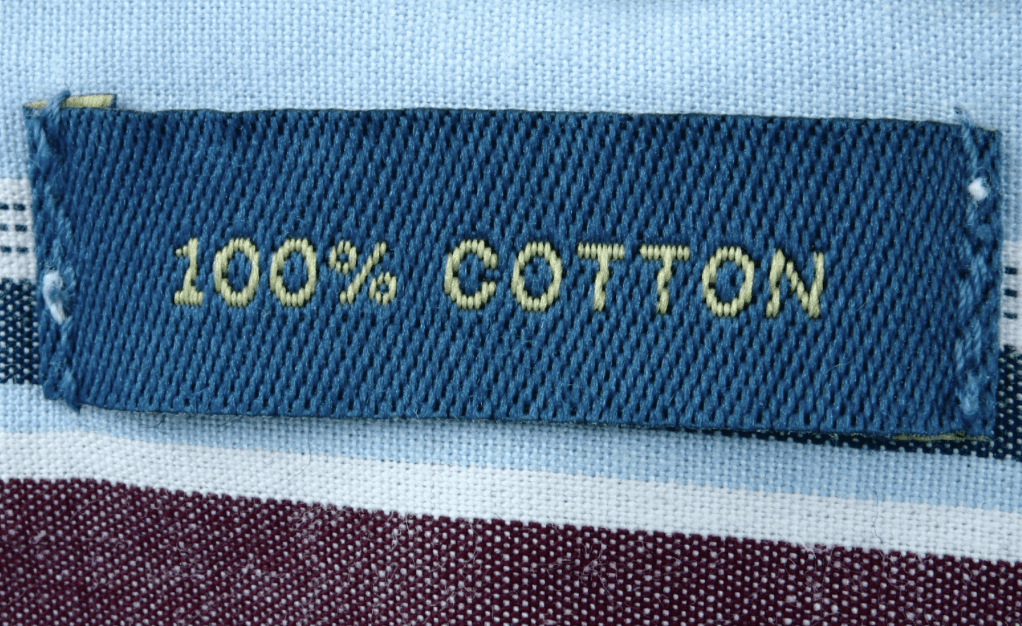Some numbers you might consider before shopping at Nike.
How much money did Nike make last year? Estimates range from $22- 51 billion.
How much did they pay in federal taxes? Approximately 9.1% in 2022.
How much do they pay their workers? Retail workers make about $18/hour.
How much do they allegedly owe garment workers in stolen wages and benefits? Allegedly 2.2 million.
In a world where corporate responsibility is increasingly under the microscope, Nike, a brand synonymous with athletic excellence, faces serious allegations of failing to pay its garment workers in Thailand and Cambodia. Despite making a staggering $22 billion revenue in 2023, the amount they allegedly owe these workers, represents a mere 0.01% of Nike’s profits.
People Over Profit Petition Trying to Pressure Nike to Pay
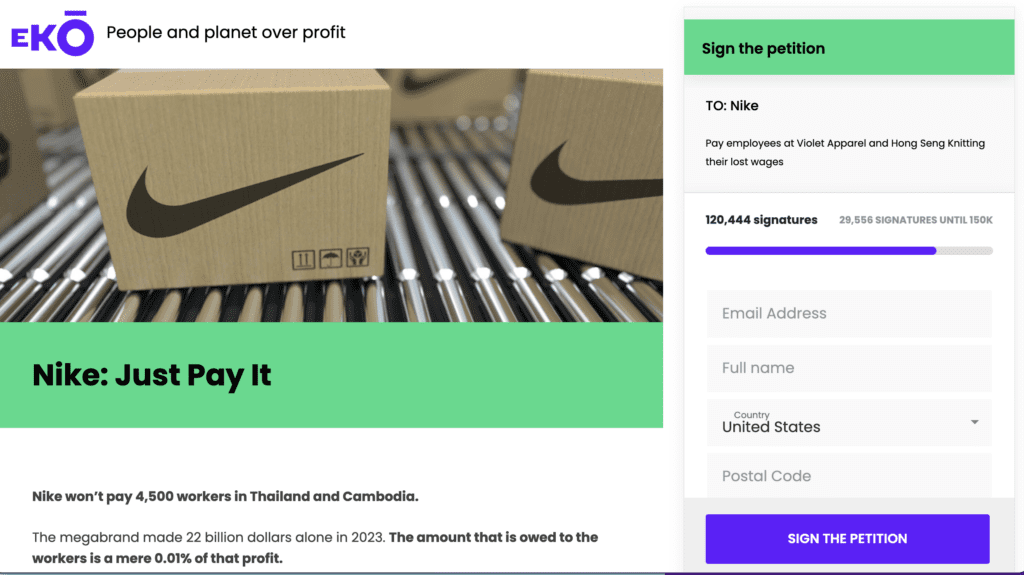
Nike’s Recent Problems Started During COVID Shutdown
So what happened? Well, it’s been going on for more than three years now. This is the deal. Over 4,000 workers in Cambodia and Thailand claim that Nike owes them a whopping $2.2 million in unpaid wages and benefits dating back to 2020. It’s not just workers making noise; investors, human rights groups, unions, and everyday consumers are calling out Nike for playing hard to get when it comes to fair treatment in their supply chain.
In Cambodia, the Ramatex-owned Violet Apparel factory closed its doors in July 2020, leaving 1,284 workers without their legally owed $1.4 million in benefits. Shockingly, even with solid evidence tying Nike products to the factory, Nike’s response is a head-scratcher—they deny any involvement.
Meanwhile, in Thailand, over 3,000 mostly Burmese migrant workers were denied their pandemic furlough pay in 2020, which a Thai court has ruled they’re rightfully owed.
Now more than 50 human rights organizations and unions, including big names like Human Rights Watch and Oxfam, are demanding that Nike step up and do the right thing. Workers have been crying out for justice, and major Nike investors have joined the outcry. They’re publicly pushing Nike to pay up the $2.2 million in unpaid wages.
The situation is heart-wrenching for these workers and their families, as they continue to struggle due to unpaid wages.
Nike denies it all. When contacted by reporters at Reuters, the company said it has not sourced product from the Cambodian factory since 2006 and that it also found “no evidence” that it owed workers in Thailand back pay.
NOT the First Time Nike has Been Accused
In the 1990s, Nike faced severe allegations and controversies related to the use of sweatshops and worker abuse in the production of their footwear and apparel in East Asia. Initially, Nike shifted its production to countries like Indonesia, Vietnam, India, Pakistan, and others due to rising prices and labor costs in Korea and Taiwan. They subcontracted factories based on the lowest bids without proper review.
The turning point came in 1991 when a report by Jeff Ballinger shed light on insufficient worker payments and poor conditions in Indonesian factories used by Nike. In 1996, Life magazine featured a shocking photo of a 12-year-old Pakistani boy sewing a Nike football, highlighting child labor issues. Nike initially denied these claims, asserting limited control over subcontracted factories.
The backlash and negative public relations forced Nike to change its practices, improve conditions, and introduce social responsibility reports in 2005. The company began auditing factories for occupational health and safety, and various advocacy groups pushed for fair labor policies, wage assurance, and better working conditions.
In response to these controversies, Nike implemented its code of conduct called SHAPE (Safety, Health, Attitude, People, and Environment), spent millions on monitoring factory conditions, and allowed human rights groups to inspect factories and interact with workers.
However, Nike has continued to face criticism and protests from activists, students, and labor rights organizations, especially over issues like minimum wage, worker safety, and freedom to unionize.
More Trouble for Nike Now: Canada’s Investigation
Canada’s ethics watchdog, the Canadian Ombudsperson for Responsible Enterprise (CORE), is making some serious moves. They’ve launched investigations into Nike Canada and Dynasty Gold over allegations of forced Uyghur labor in their Chinese supply chains. These investigations came about because of complaints from a bunch of civil society groups back in June 2022, all following a U.N. human rights report that raised major concerns about how the Uyghurs are treated in Xinjiang.
This is the first time CORE is cracking down like this since they set up their complaint system in 2021. They’re still checking out complaints against 11 other Canadian companies. Dynasty Gold have called the allegations “totally unfounded.” Nike, on the other hand, acknowledges factual inaccuracies in the report and expresses willingness to participate in discussions. CORE’s Ombudsperson, Sheri Meyerhoffer, emphasizes that no judgment has been made yet, and final reports with recommendations will be issued once the investigations conclude. admits there might be a few facts twisted in the report but says they’re all ears for a chat.
If you remember, I’ve written about SHEIN and accusations of forced labor in Uyghur.
Gen Z Takes Corporate Responsibility Seriously
Now, you might wonder, “Why doesn’t Nike just pay the money owed to these workers?” Maybe they didn’t do anything wrong but even if they didn’t… 2.2 million is nothing compared to the cost to their reputation.
Especially when you consider the influence of Generation Z on today’s business landscape. Gen Z is quickly becoming the world’s largest consumer demographic and they’ve made one thing abundantly clear: they care about corporate responsibility. According to a McKinsey study, a staggering 70% of Gen Z consumers are more than willing to shell out extra for products and services from companies deeply committed to social and environmental responsibility. This shift in consumer behavior is a game-changer, forcing businesses to rethink their strategies.
For companies like Nike, aligning with social responsibility isn’t just a nice-to-have; it’s a must.
Nike’s Responsibility
According to Nike’s own policies and international labor laws, the company is responsible for safeguarding the rights of all workers involved in producing its products. This stance is further reinforced by the actions of other brands like Adidas, Burberry, Calvin Klein, and Victoria’s Secret, who ensured their workers in similar situations were compensated.
The Call for Action
As mentioned above, a petition is now circulating, urging Nike to fulfill its obligations and pay the workers what they’re rightfully owed. This movement, #JustPayIt, echoes the sentiment that while the amount may be insignificant to Nike’s bottom line, it holds immense importance for the livelihoods of these workers.
Public Pressure and Accountability
History shows that public pressure can effect change in corporate behavior. A notable example is HUGO BOSS severing ties with a supplier engaged in forced labor following a campaign by Ekō members. This precedent underscores the potential impact of collective action in holding brands like Nike accountable.
Join the Movement! #JustPayIt!
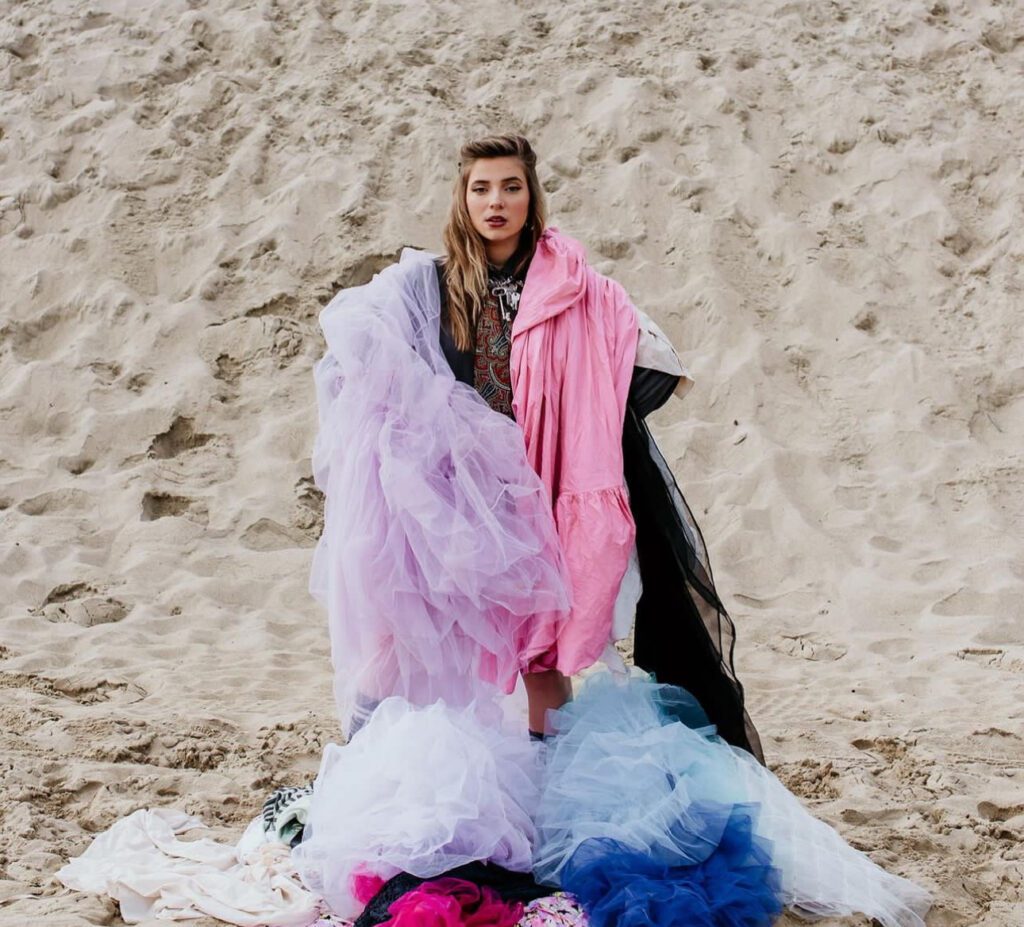
Remember to Make Ordinary Extraordinary!


